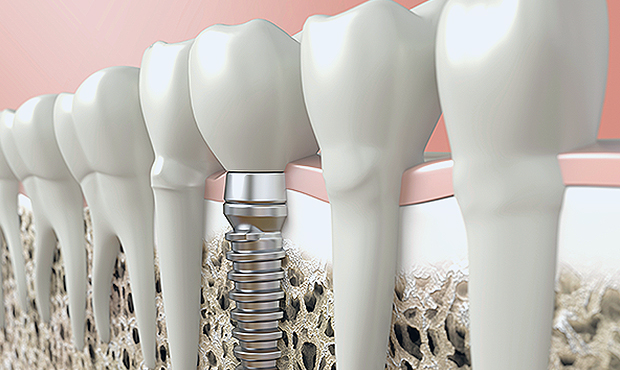How Do
Dental Implants Work?
Find out more about the different components and types of implants.
About Implant Function
Dental implants are titanium posts that are placed in the jaw to function as an artificial root to support a prosthetic tooth or set of teeth. Through the process of osseointegration, wherein the bone naturally fuses with the implant over time, implants become securely anchored in the jawbone and provide a strong foundation for the new teeth. Although they are prosthetics, dental implants look and function just like natural teeth. In fact, in some ways, they may be better than natural teeth, since they are strong, secure, and will not decay.

An implant-supported restoration incorporates three components:
The implant: An artificial tooth root that is surgically inserted into the jawbone as the foundation for a new replacement tooth. Implants are usually made of pure titanium, a biologically compatible metal that has a long history of safety and efficacy.
As the area heals, the bone grows around the implant, making it immovable. This process is called osseointegration.
The abutment: The element that connects a dental restoration (known as a crown) to the implant. This structure, made of ceramic or titanium, is screwed into the implant in preparation for the crown placement.
The crown: The prosthetic tooth, or restoration, which is placed over the abutment. Crowns are usually custom-fabricated from porcelain or ceramic.
Variations in dental implants:
The design of different implant systems varies slightly, but most use tapered or straight screws to anchor the implant in the bone. Other differences can most often be found in the design of the surface treatments that are applied to enhance the anchorage and the components that are used to attach the new prosthetic tooth to the implant (the abutments).
The doctors at Hingham Dentistry are highly experienced in dental implant placement. To learn more about how dental implants work and how they might benefit you, please contact us for a consultation.



